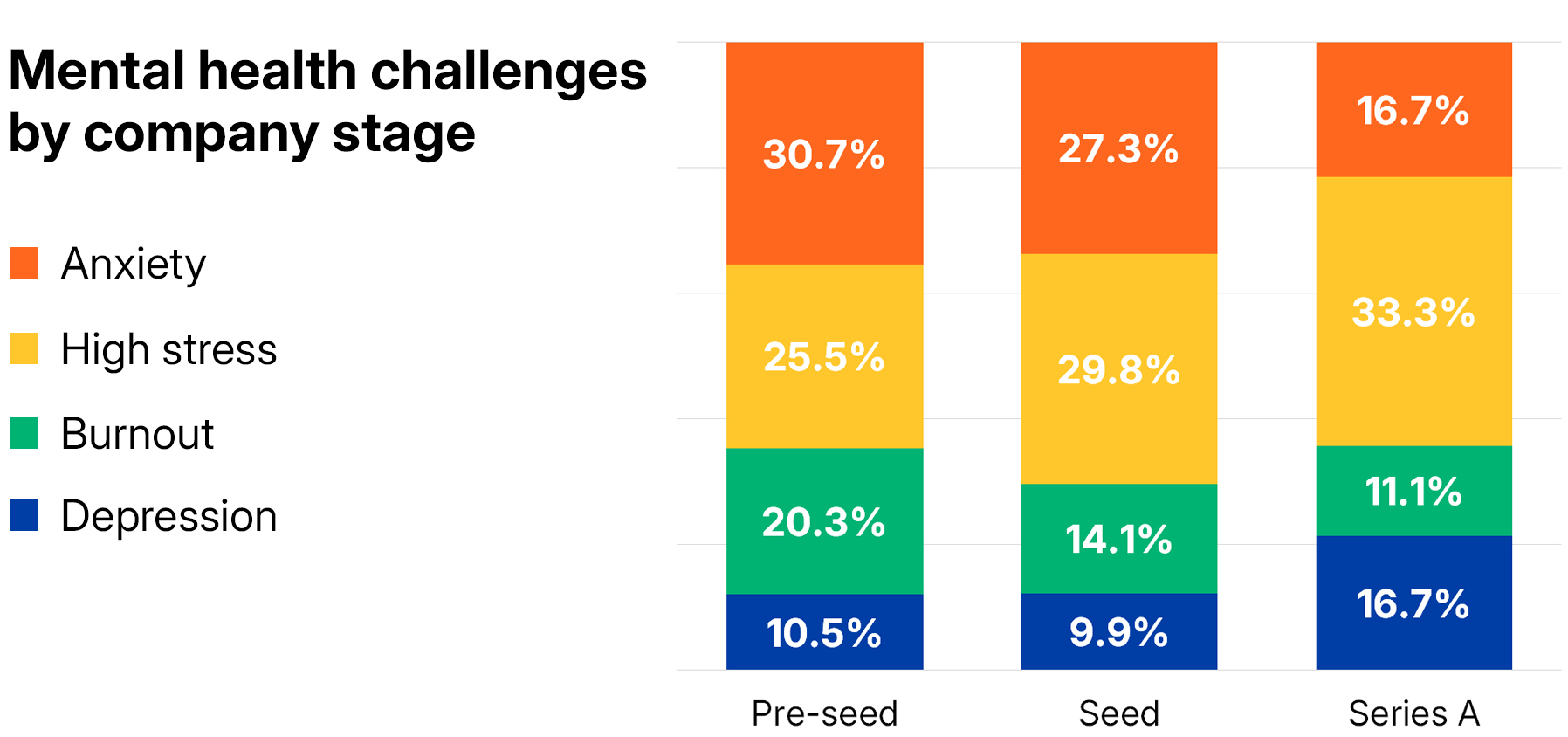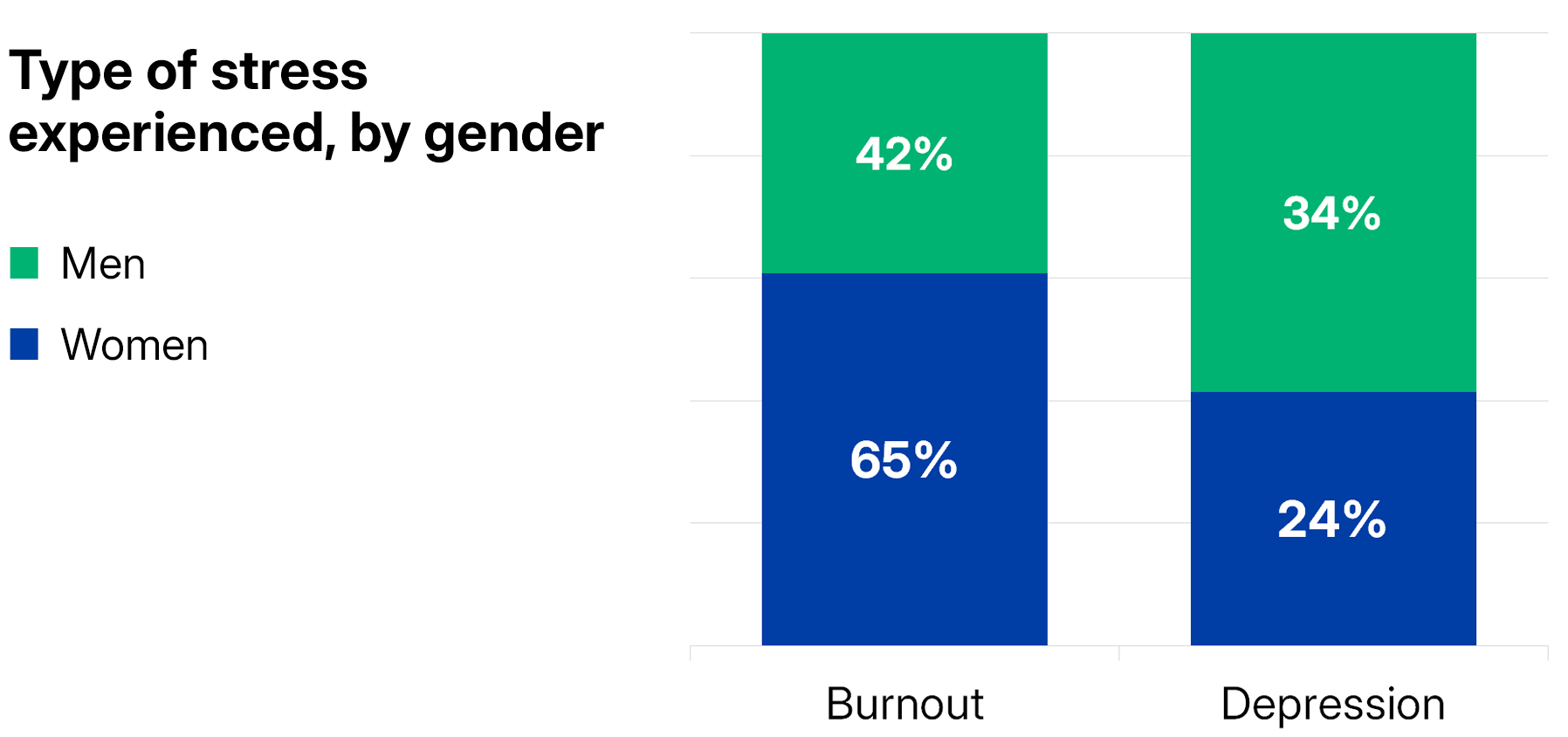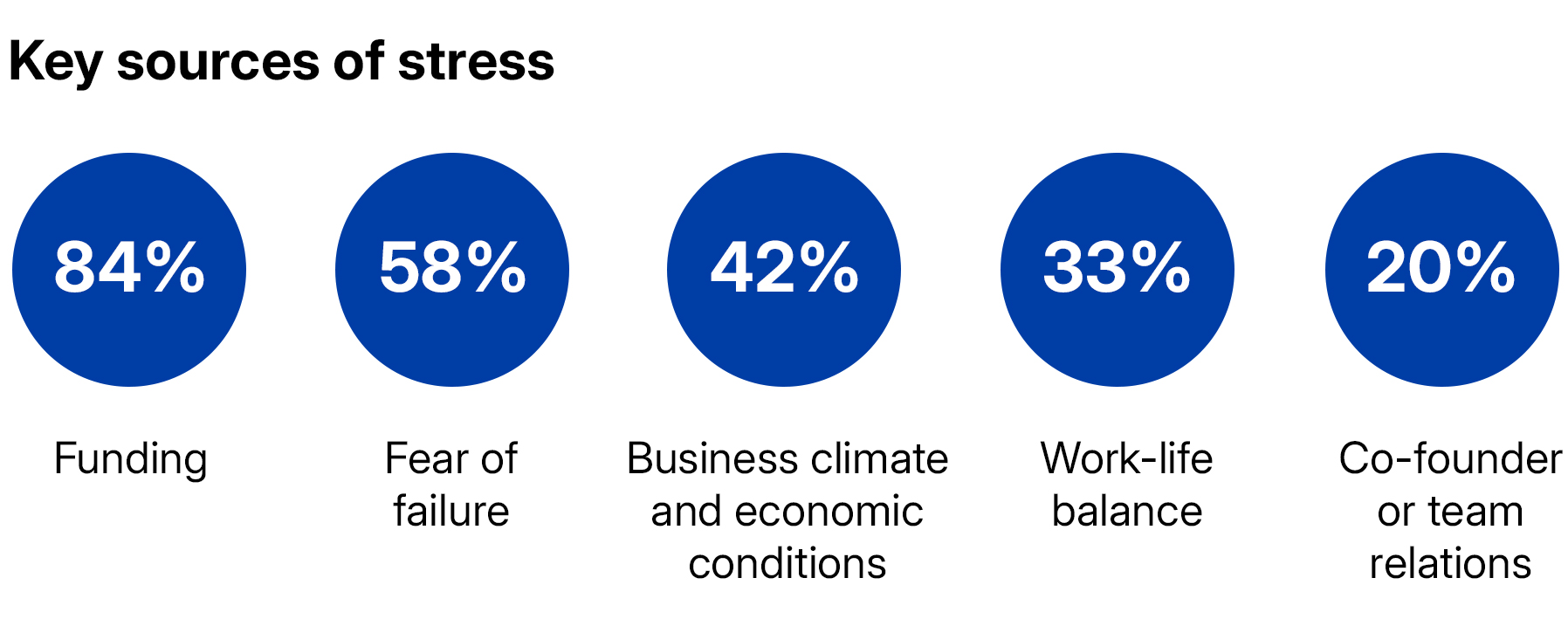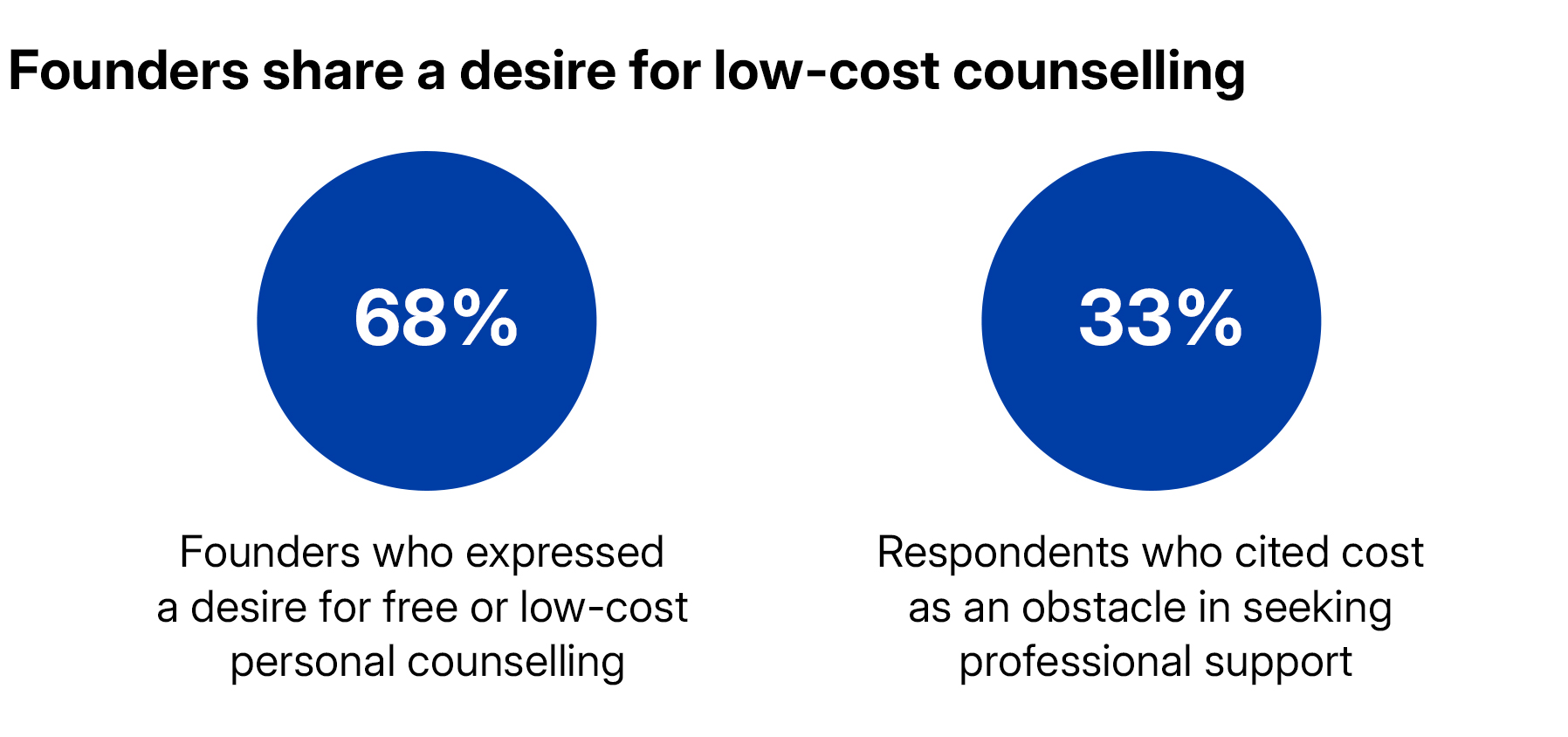Mind Balance Project: Helping founders in health sciences find support

Leaders of health science ventures are struggling with anxiety, depression and burnout, according to research from MaRS and District 3.
For health ventures, the journey from idea to lab to patient is often long and arduous. It can be particularly taxing for founders and C-suite leaders, who must navigate protracted development cycles, regulatory hurdles and inadequate funding; the strain of this process can have a real impact on their mental health. In a recent survey conducted by MaRS and District 3 of more than 100 startups in the health sciences, senior leadership team members reported troubling levels of anxiety, depression and burnout. While these challenges affected respondents from companies at all stages of growth, only 12 percent of those surveyed said they had sought professional help.
“There are concerning signs that our entrepreneurs need more support,” says Louise Pichette, health lead at MaRS. “The challenge is determining what is needed by particular subsets of founders at different stages.”
The Mind Balance Project draws on input from ventures across Ontario and Quebec, gathered with the help of community partners including ACET, CQIB, McGill University’s Dobson Centre for Entrepreneurship, MEDTEQ+, CTS, Startup Montreal, Baycrest’s Centre for Aging and Brain Health Innovation, Ontario Bioscience Innovation Organization, Toronto Innovation Acceleration Partners (TIAP), and the University of Toronto’s Health Innovation Hub (H2i). This initiative was catalyzed by a desire to more effectively de-risk early-stage health sciences startups, explains Edna Chosack, the health stream lead and senior coach at District 3.
“We’ve often seen promising ventures struggle and fail not due to their technology or market fit, but because of challenges within the founding team,” she says. As Chosack notes, many teams in this sector emerge from academic labs or clinical settings, which tend to operate with more rigid structures and clearly defined hierarchies; this can create tension as dynamics evolve in the context of a startup. “Helping teams navigate these transitions smoothly is essential for their success,” she says.
Here, a breakdown of some of the key findings from the Mind Balance Project — and insights about how to tackle this significant problem.

Respondents were asked if they experienced episodes of anxiety (heightened worries related to uncertainty about the future), stress (extreme psychological strain caused by demanding circumstances), burnout (physical or mental collapse resulting from overwork or stress) and/or depression (persistent sadness and disinterest that adversely affects day-to-day life) over the past few months. Those whose ventures were still in a pre-seed stage were the most likely to experience anxiety and burnout.

Nearly 25 percent more women than men reported experiencing burnout, while 10 percent more male founders said they had grappled with depression. Respondents overwhelmingly cited money as a primary source of stress — 84 percent of those surveyed identified funding concerns as a major factor in their psychological well-being.

Innovation hubs aim to help startups mitigate risk and accelerate growth on their road to commercialization. These findings make it clear that tangible mental health resources are an essential element of supporting founders on that journey. Steps can include providing low- or no-cost access to mental health professionals as well as connections with mentors and peer-to-peer support networks, and pooling resources to expand access to trained therapists and coaches. As well, startups across the country are working to tackle this issue, with solutions that include novel therapeutics, accessible online platforms, wearable tech and more.

Because health startups face certain unique challenges, Pichette says, there is a real need for spaces where founders at similar stages can connect with and support one another. This is especially true for members of underrepresented groups — notably, respondents who identified as BIPOC reported the highest rates of mental health struggles. The findings indicate that more must be done to fill these gaps; given the current climate, Pichette adds, prioritizing inclusivity is vital. For instance, advisors could be empowered, through specialized training and workshops, to provide tailored support to leadership team members at companies they work with. And as a matter of course, innovation hubs can ensure that startups are introduced to the range of resources available to them early in the collaboration process.
“We want to incorporate mental health into everything we do, rather than having it siloed off,” Pichette says. “Going forward, we need to ask how we can work with investors and other stakeholders to see that the wellbeing of founders is as critical to success as the business itself.”
 MaRS Staff
MaRS Staff